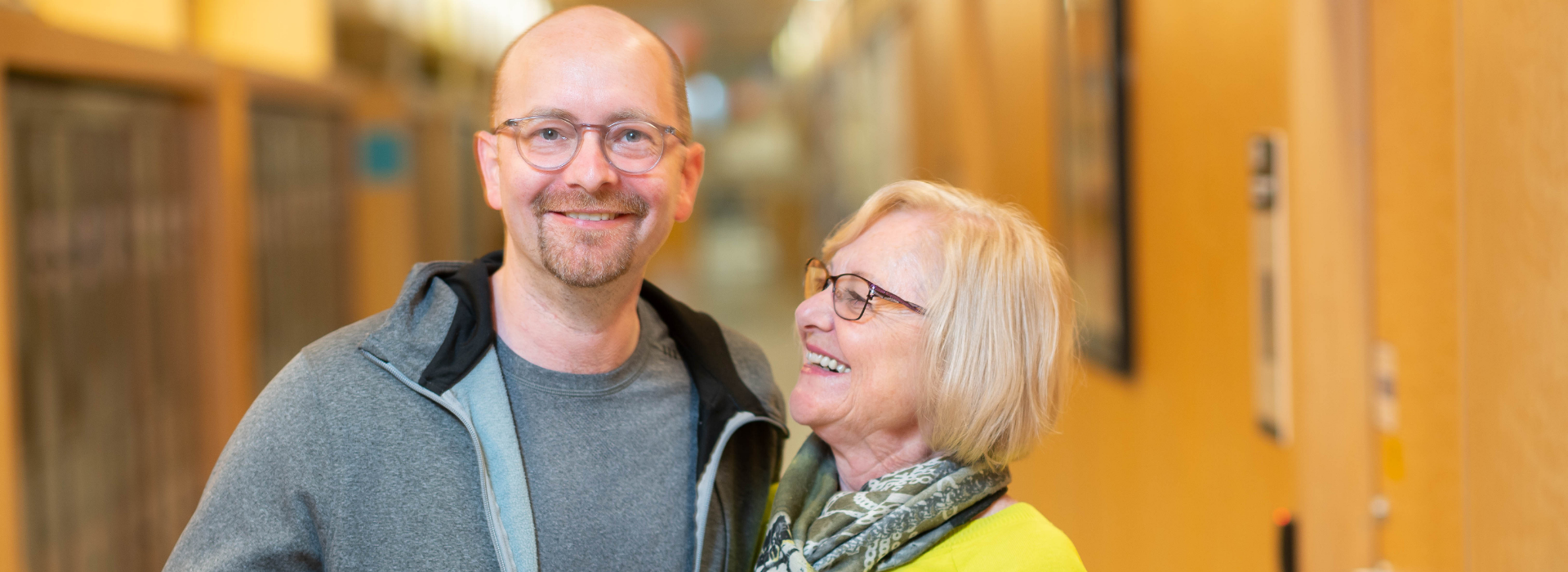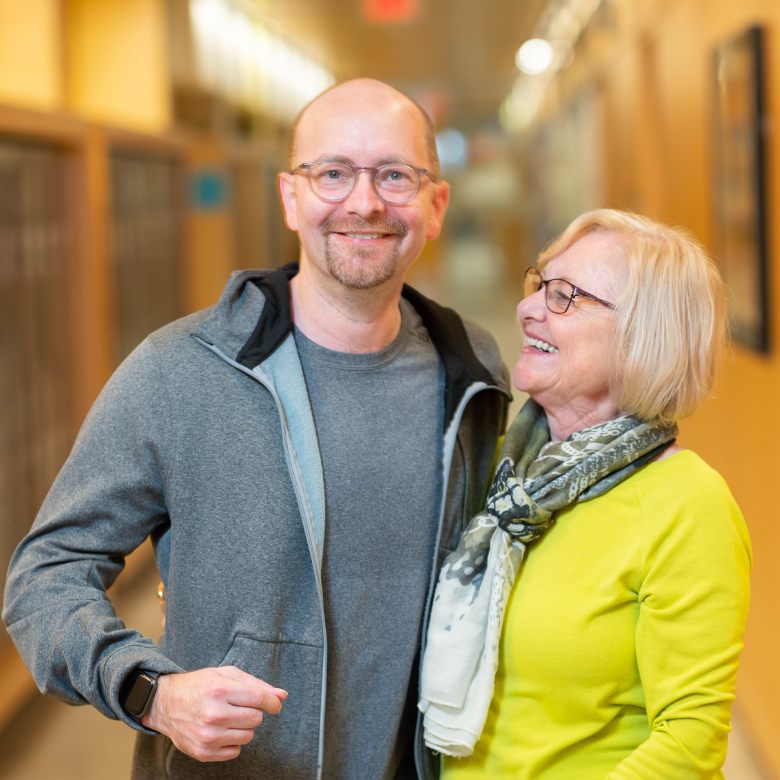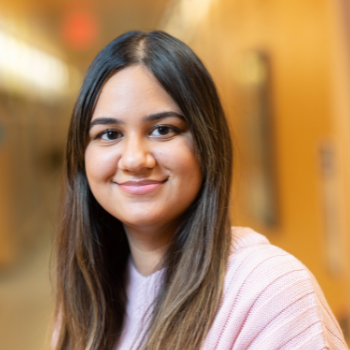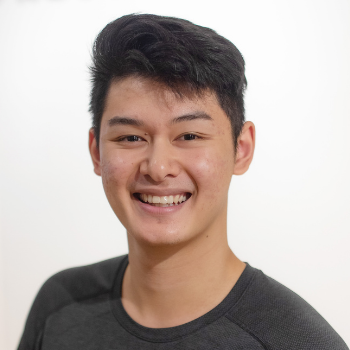UBC student-led clinics collaborate to improve patient care
In July 2020, Ryan was biking the trails on Hornby Island with his young son when he lost all feeling on the right side of his body. Five days later, he woke up in the hospital with no memory and was unable to talk.
“I forgot everything and everyone,” he recalls. “I wanted to say to my wife, ‘What happened? Why can’t my speech be clear?’ But I couldn’t say anything.”
At 42-years-old, Ryan had suffered a stroke that paralyzed the right side of his body. He was also left with non-fluent aphasia, making it difficult for him to find the words to say and speak in sentences.
During the course of his recovery, Ryan learned from his healthcare team about an innovative and collaborative rehabilitation initiative at UBC that combines the Physical Therapy and Research Clinic (PTRC) and the School of Audiology and Speech Sciences’ Speech-Language Pathology (SLP) Clinic.
The program is designed to teach students how to deliver holistic and interdisciplinary patient-centered care.
Last year, the two student-led clinics saw a unique opportunity to come together, under the supervision of clinical instructors Cheryl McGee and Helen Honig, to learn how to provide team-based care for patients, like Ryan, who have mobility and communication challenges because of injury or disease.
Together, the students and Ryan are charting a path forward, along with the unwavering support of his wife Suzanne and his mother Ann.
“It’s been an amazing experience to see,” says Ann. “He’s come so far.”
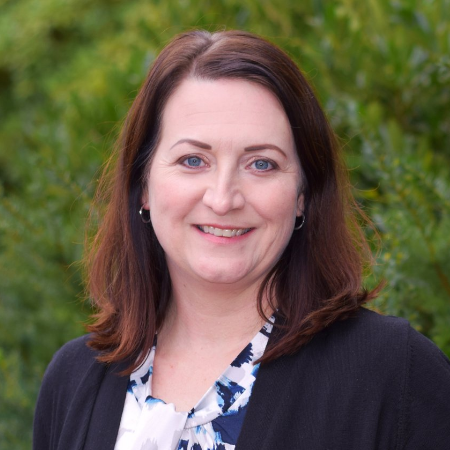
Cheryl McGee, clinical practicum coordinator and clinical instructor with the SLP clinic
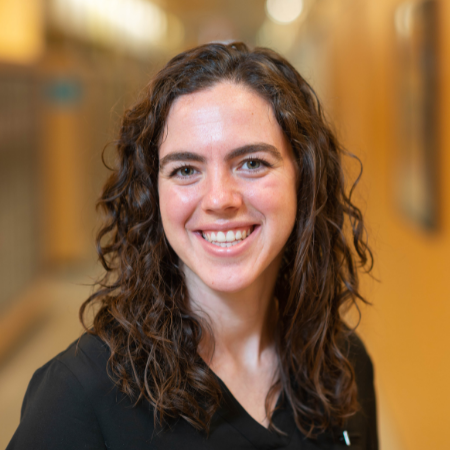
Helen Honig, clinical instructor and physiotherapist at the PTRC
A new way of learning
Developed as a pilot project last year, the SLP clinic was created to provide students with in-house clinical skills while connecting patients with care.
Serendipitously, the PTRC was also located in the same building offering the perfect opportunity to merge both health professions into a training model for team-based care.
Each month, SLP and physical therapy students training at the clinics shadow each other, offer rehabilitative care together and meet regularly to discuss the needs of mutual patients.
The experience has also taught them how their respective fields complement the other — with SLP students helping patients communicate during physio by using visuals and pain scales and physical therapy students using exercise and movement to improve memory and word-finding skills.
“The benefits of this interdisciplinary training model have been incredible,” says McGee. “Students are sharing their knowledge and strategies to reach a common goal which is to provide the most effective treatments possible for patients.”
Gavina Sian, a second-year SLP student who has been working with Ryan, is already putting her newfound knowledge into practice.
“I now know how to safely transfer my patient from a wheelchair to a chair if needed,” she says. “And how to incorporate physical movement into my speech sessions to help keep patients with fatigue stay alert and engaged.”
For Adrian Cheng, who recently graduated from UBC’s physical therapy program, the experience showed him the power of interdisciplinary care.
“It taught me how to open my eyes to the whole patient and see what other areas of care they may need beyond physical therapy,” he says. “And how to guide them to the right resources so that they can further improve their health and quality of life.”
The clinics have also adopted an affordability model to ensure that their services remain equitable and inclusive, while exposing students to the value of team-based patient-centered care.
For Ryan, the benefits are life changing. The students are not only helping him regain control over his words and movement, they are guiding and supporting him during his journey to recovery.
The power of team-based care
Sitting next to Sian, Ryan looks at pictures on an iPad and quickly names what he sees.
“Hat, bee, water bottle, salt,” he answers.
Prior to his speech session, he was doing cardio exercises at the PTRC and is now able to move his right arm more than before. He’s also able to express his words more fluently.
“We realized early on that his speech was much faster and clearer right after physio,” explains Sian.
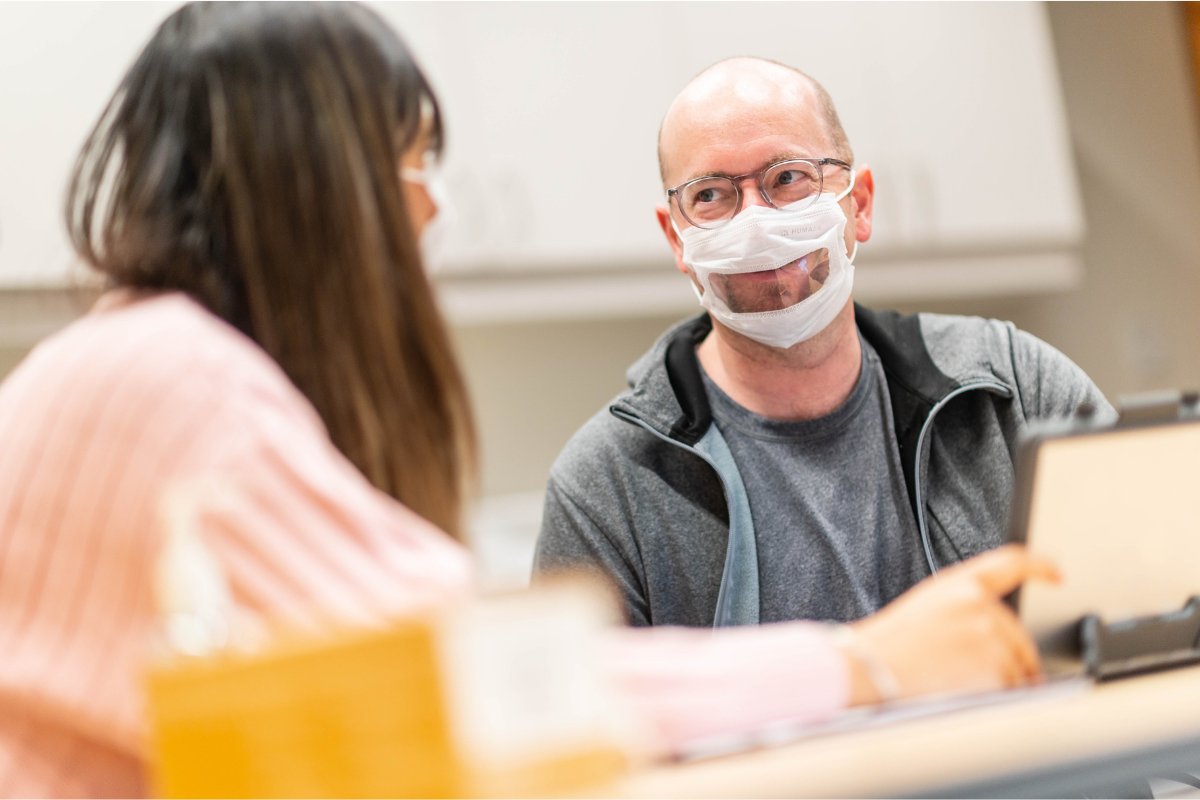
Ryan works with Gavina Sian at UBC’s SLP clinic. The clear masks allow them to use important visual cues like speech-reading and facial expressions.
Sian and others then worked together to reschedule all of Ryan’s speech appointments to follow physio so that he could retain as much as possible from both visits.
“The words are just coming,” Ryan says with happiness.
Since last fall, Ryan has gone from single word answers to engaging in conversations using short sentences, and being able to use his hand to gesture and draw pictures of words he may be searching for.
“This is the power of team-based care,” explains Honig. “The students are seeing this first-hand and understanding how it can vastly improve the quality of care that we are collectively delivering. These are skills that they’ll use throughout their future careers.”
Surrounded by a loving and supportive family, as well as a deeply engaged care team at UBC, Ryan knows that the day will come when he will be able to speak and move more freely again.
“I’m improving,” he says gesturing upwards. “[And I need to] keep going!”
Developed as a pilot project, the Speech-Language Pathology Clinic ran from September to December, 2021. For more information about possible future clinics, visit the School of Audiology and Speech Sciences website.
For more information about the Physical Therapy and Research Clinic, please visit the clinic website.
